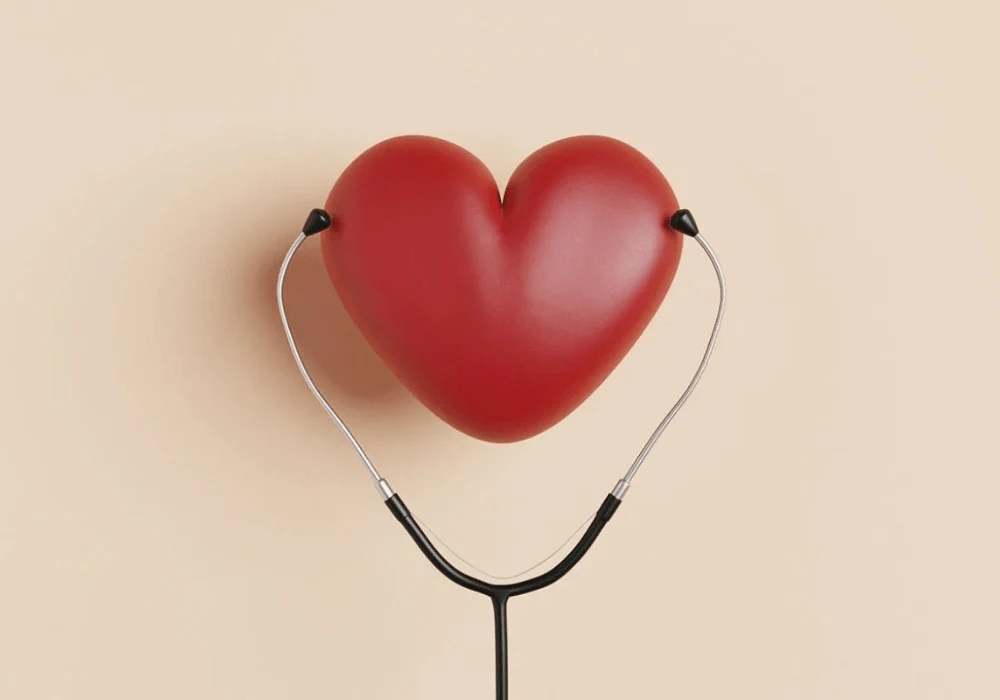Heart health is a major concern in the U.S. Or at least it should be.
Cardiovascular disease has been the leading cause of death here for 100 years now, yet more than half of U.S. adults, 51%, don’t even know it. Perhaps not surprisingly, nearly identical numbers of U.S. adults have either cardiovascular disease or hypertension. And as of 2021, five of the top ten drugs prescribed to outpatients were either antihypertensives or antihyperlipidemics. Statistics like these go on and on, so clearly a lot more needs to be done to educate people in the U.S. of how their lifestyle choices are literally killing them.
Here is a list from the AMA’s What Doctors Wish Patients Knew™ series—which provides physicians with a platform to share what they want patients to understand about today’s health care headlines—on some important health tips that cardiologists want their patients to know.
Surviving stroke means knowing more about it
- Every 40 seconds, someone in the U.S. has a stroke, which is a medical emergency that demands swift action. Stroke is the fifth-leading cause of death in the U.S. and a major cause of long-term disability for adults, but it is preventable and treatable.
- That is why patients and families need to know more about preventing and identifying stroke. This starts with knowing what a stroke is, what its risk factors are and how to recognize its symptoms. A cardiologist and an internist provided guidance on what to do—and what not to do—in the event of a stroke
Life expectancy is dropping, and even young people should be worried
- In 2023, for the second year in a row, life expectancy in the U.S. declined—this time to the lowest level since 1996. That marked a disturbing turn from the historical trend. An interventional cardiologist and two other physicians took time to discuss what patients need to know about declining U.S. life expectancy. For starters, it’s not just older people who are dying younger; 35- to 44-year-olds have seen the biggest jump in mortality.
Be ultracareful about ultraprocessed foods
- For people on the run, ultraprocessed food may become their go-to diet, sacrificing nutrition for convenience. While it may be easy, consuming ultraprocessed foods on a regular basis increases a person’s risk of health complications including cardiovascular disease, certain cancers, obesity and type 2 diabetes.
- But it can be hard to tell when these foods are on your plate. Get great advice from a preventive cardiologist and a family physician on what makes ultraprocessed foods unhealthy and pick up practical tips for cutting them from your diet, including how to navigate the grocery store.
Approach caffeine with caution
- Many people can’t imagine starting their day without a cup of coffee or tea. Caffeine has become the silent hero fueling our daily lives, helping people get through that afternoon slump. It can also have positive effects on alertness, cognitive function and athletic function. But as we indulge in our favorite caffeinated beverages, there are also some concerns about excessive consumption and potential health risks. Two neurologists and a cardiologist weigh in on the pros and cons of caffeine consumption, as well as how to safely and effectively consume it.
Healthy eating begins with self-knowledge
- What you eat plays a leading role in your health and well-being. When someone eats healthy, it helps to protect against many chronic diseases such as heart disease, prediabetes, type 2 diabetes and obesity. But with so many fad diets and food recommendations out there, it can be hard for patients to navigate what to eat and what not to eat.
- Two AMA members—a preventive cardiologist, along with a family physician and obesity medicine specialist—took time to discuss what they wish patients knew about healthy eating. At the top of that list: Understand your eating patterns and what triggers you to eat.
Learn more about the AMA MAP™ Hypertension program, which helps care teams to improve and sustain BP control with an evidence-based approach that includes peer to peer education, practice tools and resources.
Source & Image Credit: AMA






